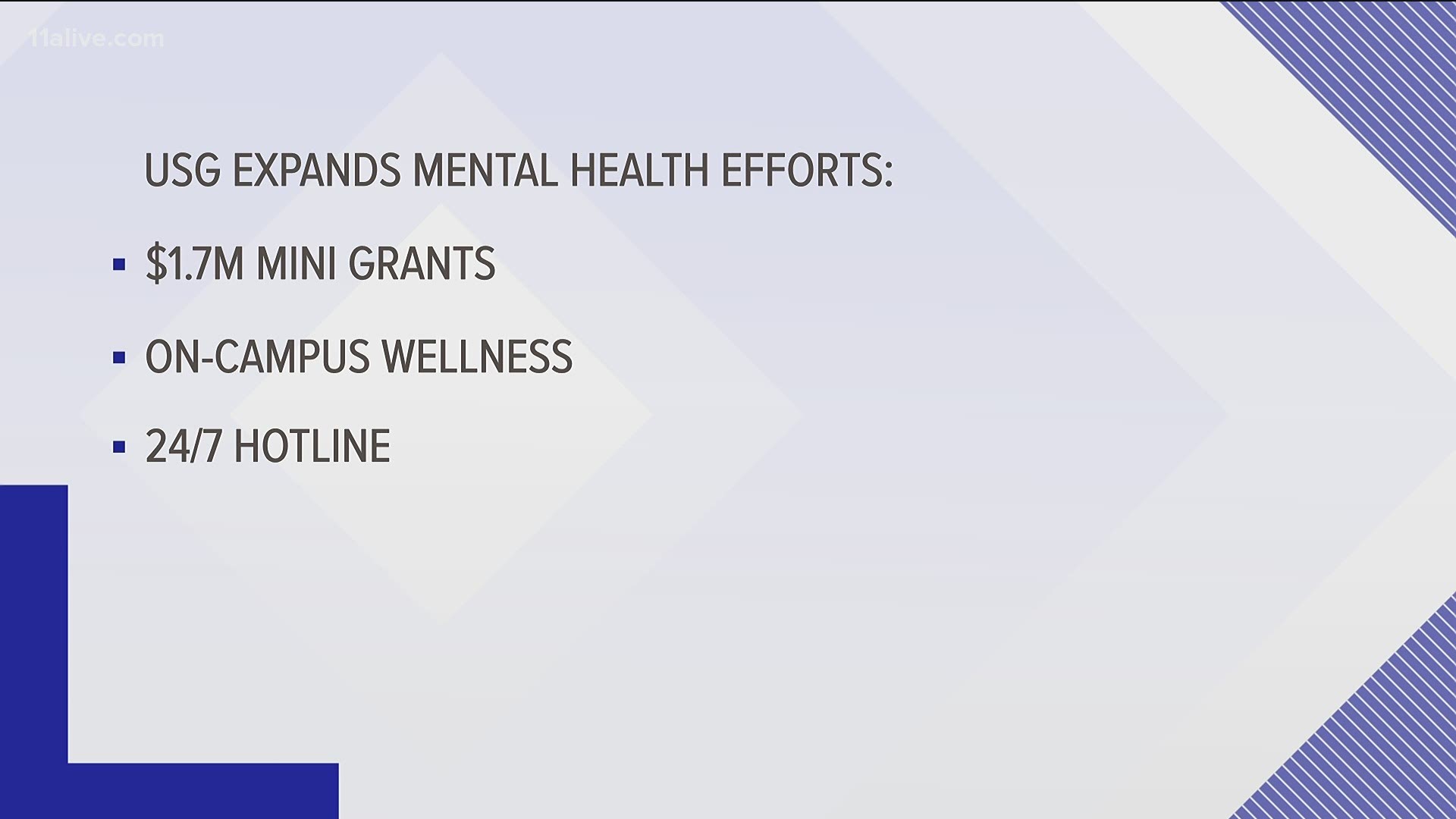ATLANTA — While the country battles COVID-19, another growing crisis around mental health is impacting young adults and college students. That's why the University System of Georgia is expanding access for support.
On Monday, USG launched a comprehensive plan to expand student mental health services during the COVID-19 pandemic. In August, Governor Brian Kemp announced Georgia would allocate $11.5 million of the Governors Emergency Education Relief (GEER) funding, set aside by the federal CARES Act, to support mental health and student support services within USG.
The majority of the funding, $8 million, will expand USG clinical resources to ensure every student has access to telephonic psychiatric care and clinical counseling services.
Expanded services will also offer in-person counseling options through a partnership with Christie Campus Health, a 24/7 hotline and well-being support programs. Additional funds will be set aside to create a USG Mental Health Consortium, which will develop a long-term service model for USG’s 26 institutions.
In recognition of the unique needs of each USG campus, $1.7 million in mini-grants will be made available to campuses to support mental health and wellness. These funds can be used to establish new technology resources, increase campus programming, or enhance communications.
According to the Centers for Disease Control and Prevention, young adults and many college students have reported feeling anxious and depressed this year. Some students said financial and career burdens are to blame.
“How do you go into this job market with the economy the way it is and with everything going on? So we’re scared, but we’re also doing our best is what I want people to know," said Georgia Tech college student, Kate Gordon.
Child, adolescent, and adult psychiatrist Dr. Suvrat Bhargave said he's seen more college students, and the program could not come at a better time.
“I think a lot of young people feel that they are more alone in their journey. So we have to show them what the landscape looks like in seeking help," added Bhargave.

